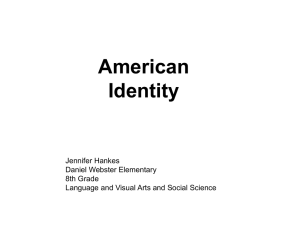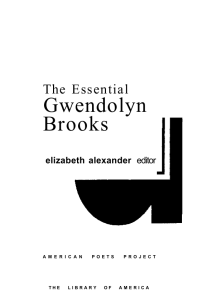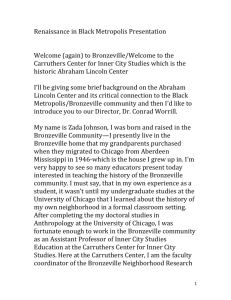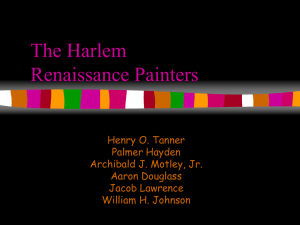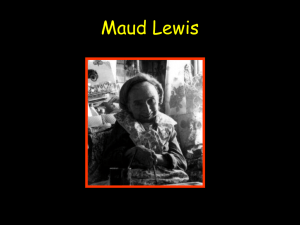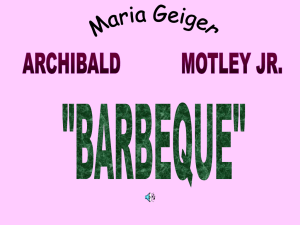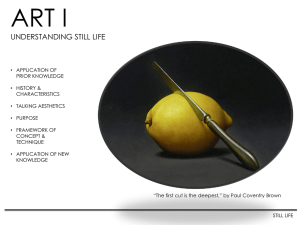Chicago Academy, Pamela Scala, 5th Grade Social Studies and
advertisement
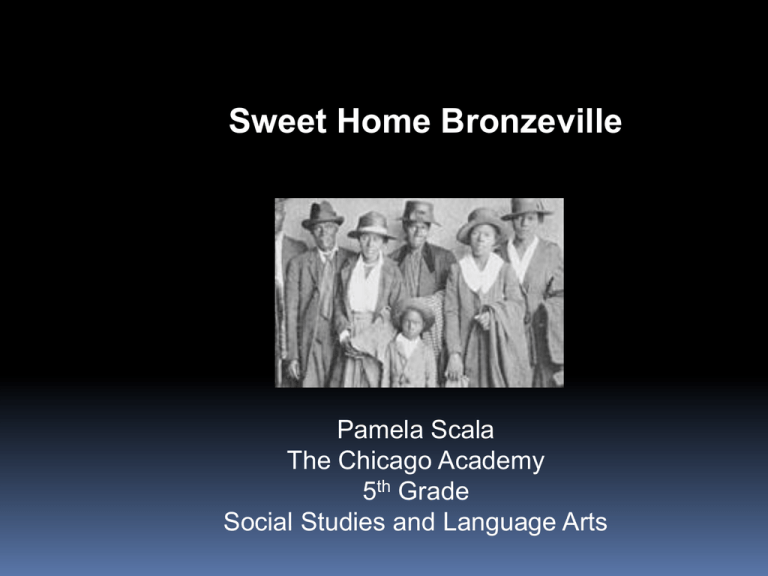
Sweet Home Bronzeville Pamela Scala The Chicago Academy 5th Grade Social Studies and Language Arts Archibald John Motley, Jr. Nightlife, 1943 Oil on canvas Art Institute of Chicago Key information & ideas about Nightlife Motley wanted to show African Americans in a positive light in his paintings and often portrayed them having fun. The painting portrays a sense of relative prosperity in Bronzeville because the African American men and women are wearing fashionable suits and dresses. Depicts African Americans enjoying an evening in a Bronzeville nightclub. By showing them in an inviting atmosphere, having a good time and escaping their troubles, attempting to show the similarities between African Americans and other races: everyone likes to have a good time and forget their worries. Goals for Lesson—what I wanted students to learn: Major contributions by African Americans to American culture through art and music. Importance of jazz music and its influence on popular American music styles. The transition of African Americans from rural to urban life and the development of Bronzeville. Use of research to write a historically correct fictional narrative. A few major learning activities: Students read the novel Bud, Not Buddy by Christopher Paul Curtis to understand historical fiction. Students listened to jazz music and read about the lives of famous musicians. Students wrote fictional narratives using the research materials on the The Great Migration and Bronzeville. Students studied the painting Nightlife by Archibald Motley Jr. Students read the novel Bud, Not Buddy and created a literature journal, dictionary and classroom bulletin board of facts about The Great Migration and Jazz eras. Students did research on Bronzeville and wrote historically correct fictional narratives using the figures in the painting Nightlife by Archibald Motley. Students learned: Literature can complement and enhance a piece of art. Music can set the tone and mood to better understand the meaning behind a work of art. A painting can invoke higher order thinking skills. A painting can ignite creative ideas for fictional writing. Art can be read like a book for information on an artist, era and subject matter. A picture really is worth a 1000 words. What I learned: Student saw many more details and responded with more intuitive thoughts about a painting than I was expecting . Students are open to any type of art. They are not inhibited by any medium. Students enjoy experiencing new music forms. Students are interested in and amazed about different eras of history, especially those so close to their home. • Students can use research to write a creative and interesting fictional narrative.
